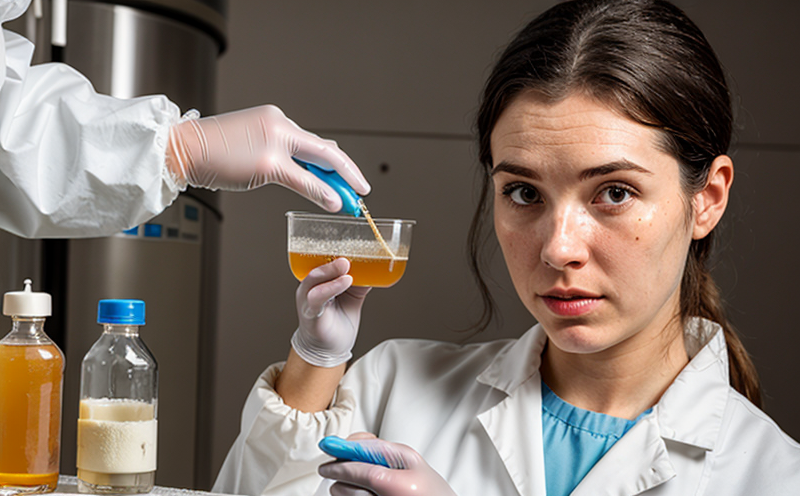Mold, Yeast & Fungal Identification Testing
When it comes to mold, yeast, and fungal identification testing, accurate and reliable analysis is paramount. In the realm of biological and microbiological testing, these microorganisms can pose significant health risks if not properly identified and managed. This service ensures that samples are accurately classified according to their species, genus, or other relevant taxonomic classifications.
The process begins with thorough sample collection from various environments such as indoor air, building materials, soil, and water sources. Once collected, these samples undergo a series of preliminary examinations including visual inspection under microscopy and culturing on selective media appropriate for different types of fungi. This allows for the isolation and growth of specific fungal colonies which can then be examined more closely.
Advanced techniques like DNA sequencing are employed to confirm identifications based on genetic material extracted from isolated colonies. These methods provide high specificity and accuracy, essential for ensuring that all identified species match those specified by clients or regulatory bodies. Additionally, culture-based approaches allow researchers to study the metabolic activities of molds which can inform understanding about their potential allergenicity.
In parallel with this work, we also conduct detailed environmental assessments using air sampling devices and swabs to monitor levels of various fungi within indoor spaces. This helps clients understand not only what kinds of fungi are present but also how prevalent they might be in different areas of buildings or facilities.
Once identification has been completed, comprehensive reports outlining the findings are provided along with recommendations for managing any identified issues. Our team works closely with each client throughout every stage of this process to ensure that all needs are met and expectations exceeded.
- Sample Preparation: Properly prepared samples are crucial for accurate identification. We use techniques such as freeze-drying, desiccation, or preservation in saline solutions depending on the type of sample being analyzed.
- Culture Methods: Depending upon the suspected organism(s), various selective media may be used to promote growth while inhibiting unwanted contaminants.
- Molecular Techniques: PCR-based methods and next-generation sequencing (NGS) are employed when conventional microscopy or culture cannot provide sufficient information.
Applied Standards
The testing processes we employ comply with several international standards including ISO standards, ASTM guidelines, and EN specifications. These ensure consistency across all analyses conducted within our laboratory facilities. For example, ISO 14698 specifies the method for identification of molds in indoor air environments, while ASTM E1075 provides protocols for collecting settled dust samples for fungal analysis.
Our compliance with these standards guarantees that results obtained are both reproducible and internationally accepted. By adhering strictly to these guidelines, we maintain high levels of accuracy and precision throughout all stages of our testing procedures.
Quality and Reliability Assurance
To ensure the highest quality and reliability in our services, we have implemented robust Quality Management Systems (QMS) that are regularly audited by independent third parties. Our team adheres strictly to these systems during every aspect of sample handling, preparation, analysis, interpretation, and reporting.
- Traceability: All samples are tracked from collection through final report generation ensuring complete traceability throughout the entire process.
- Training: Our staff receive continuous training in cutting-edge methodologies and technologies used in microbiological testing to stay up-to-date with industry developments.
- Validation: Regular validation studies are conducted on our instruments and methods to confirm their continued reliability and accuracy over time.
Competitive Advantage and Market Impact
Our specialized mold, yeast, and fungal identification testing service offers significant competitive advantages in today’s market. By providing accurate and reliable results quickly, we enable clients to make informed decisions regarding potential health risks associated with microorganisms found in their environments.
This capability can lead directly to improved product quality by identifying contaminants early on in manufacturing processes or supply chains. For healthcare providers, this service ensures patient safety by preventing the spread of pathogenic fungi within hospitals and other healthcare settings.
Moreover, our expertise helps businesses comply with increasingly stringent regulations regarding indoor air quality standards set forth by agencies like OSHA (Occupational Safety & Health Administration) in the United States or similar bodies worldwide. This not only protects employees but also enhances public perception of companies committed to maintaining safe working conditions.





